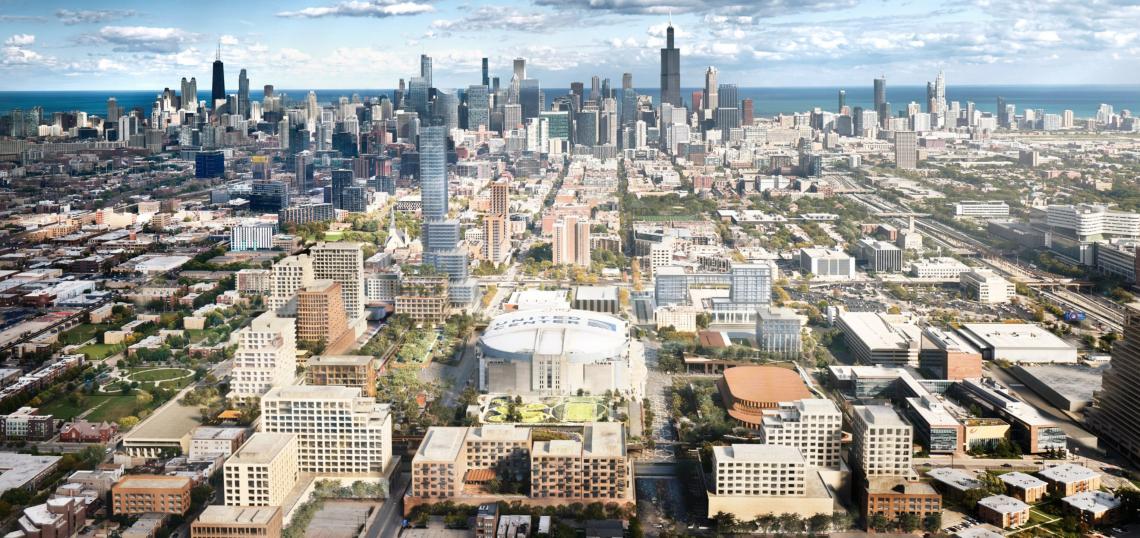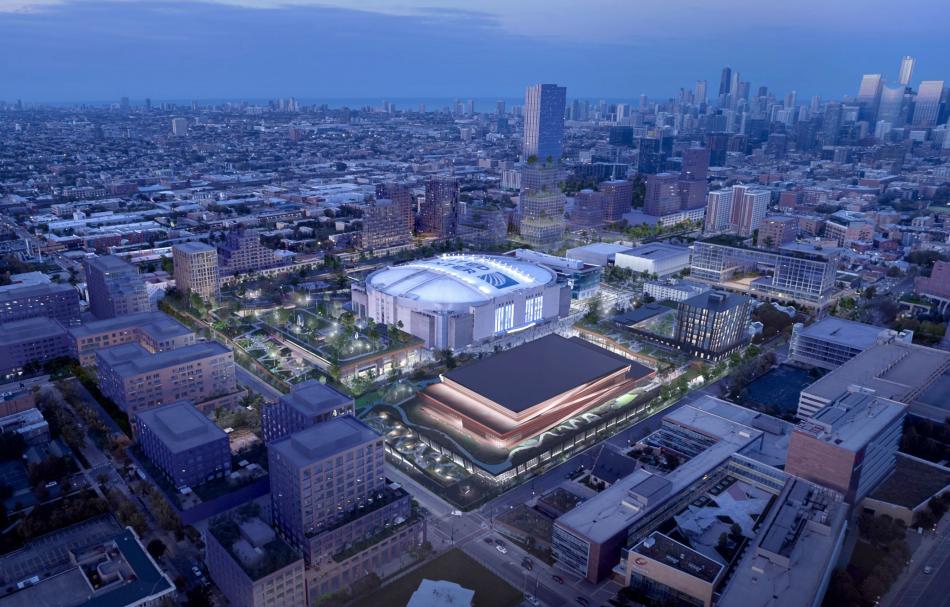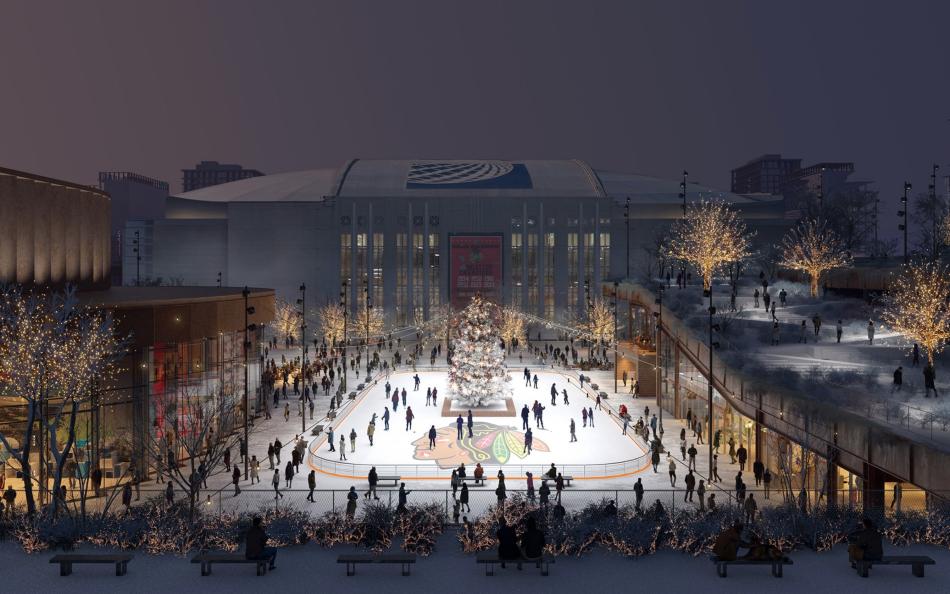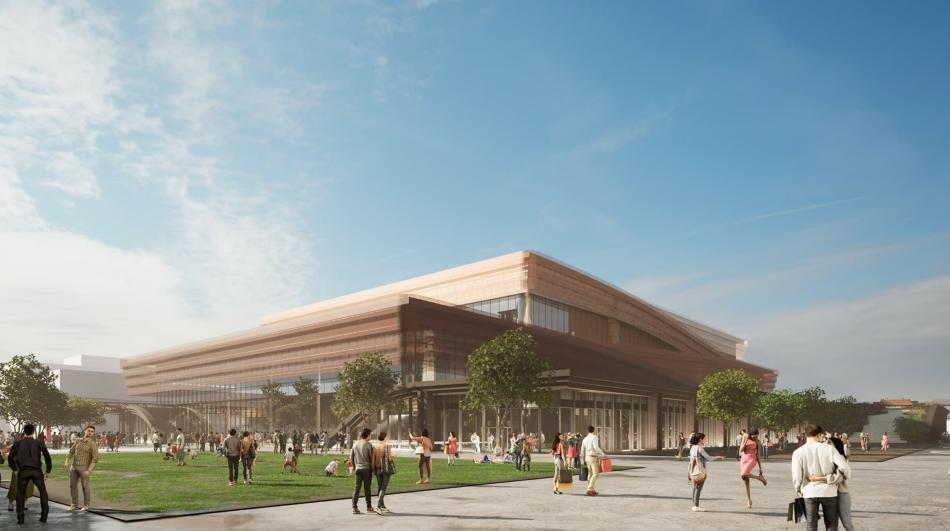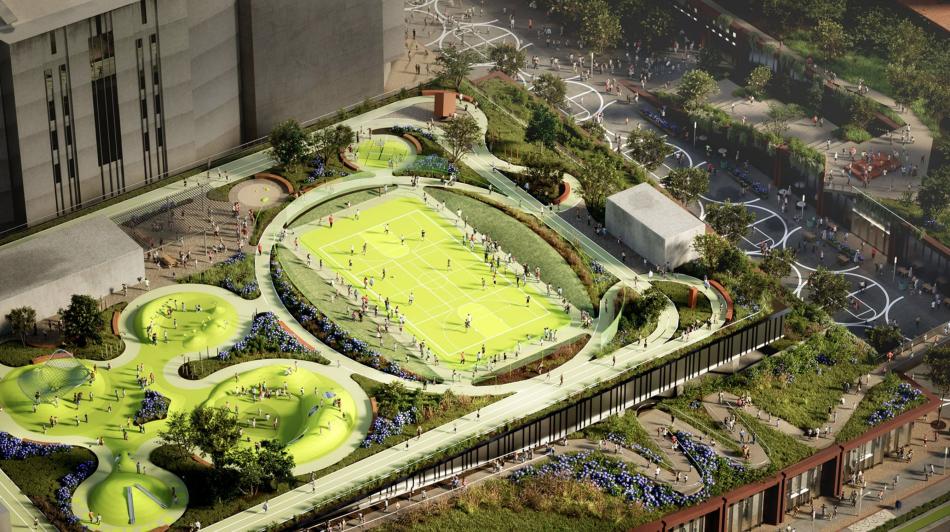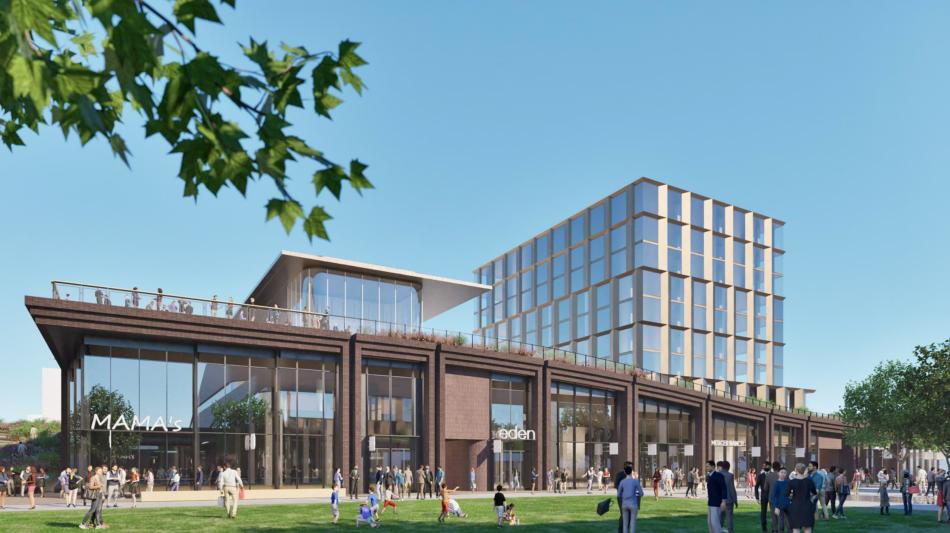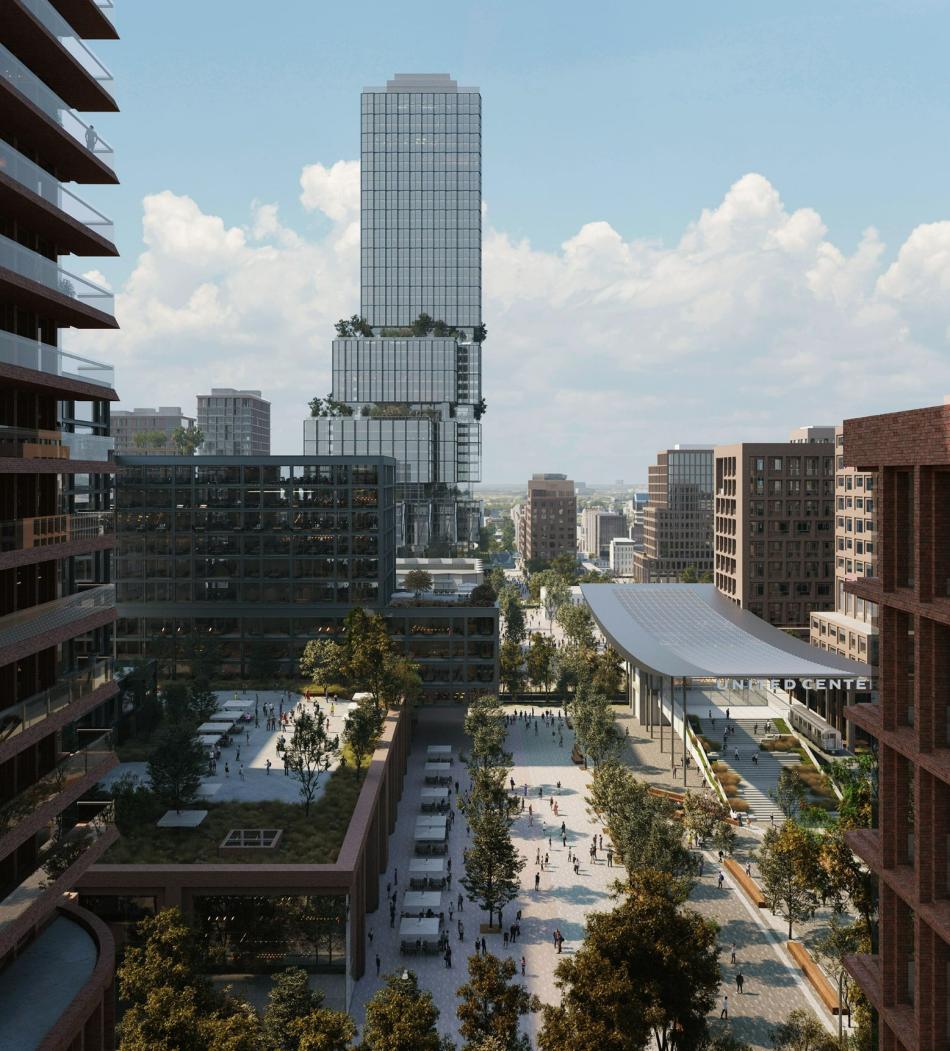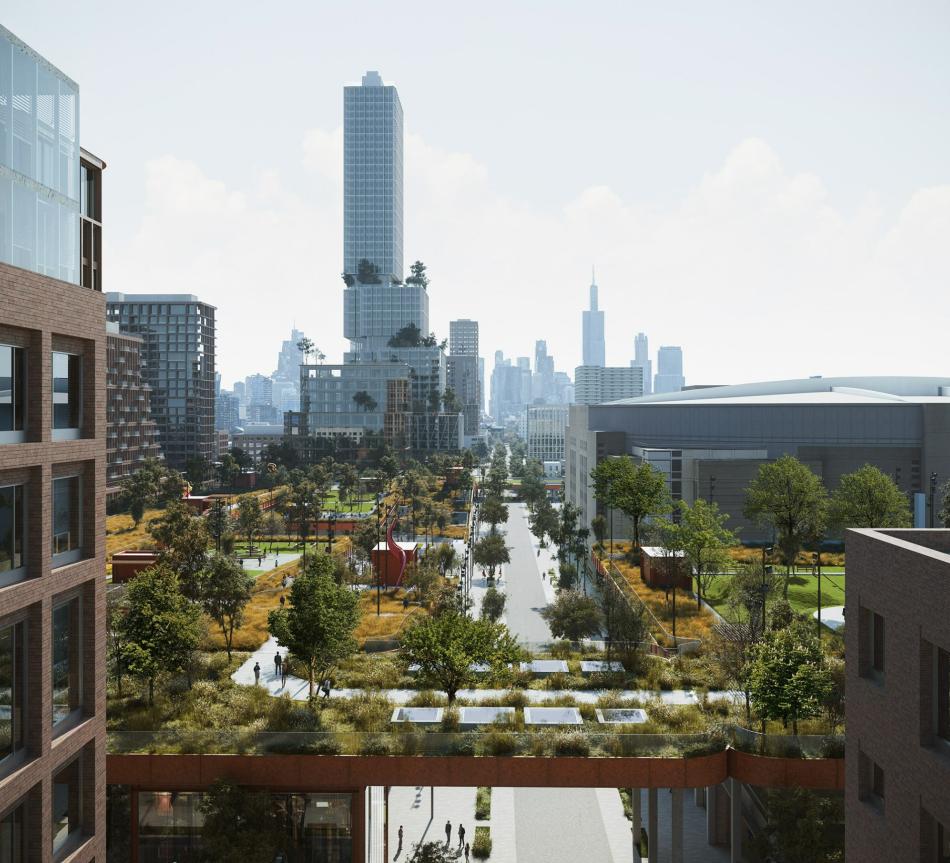United Center next-generation owners Michael Reinsdorf and Danny Wirtz have announced plans for a $7 billion catalytic mixed-use development project that includes housing, retail, entertainment and public open space on more than 55 acres of privately owned land surrounding the iconic arena campus. Spearheaded by the Reinsdorf and Wirtz families, The 1901 Project will transform the parking lots surrounding the United Center with new development, bridging neighborhoods and enhancing opportunities for residents, businesses and all of Chicago.
“The 1901 Project represents a continuation of our families’ 100-years-and-counting commitment to the future of Chicago’s West Side,” Reinsdorf said. “This investment will create a thriving, interconnected neighborhood, delivering significant benefits and resources to the community we have long called home.”
The 1901 Project is a long-term, multi-phased development vision spanning an estimated ten years. The first phase of the project aims to begin in spring 2025 on property that is today surface parking lots adjacent to the arena.
The initial phase will feature a 6,000-seat capacity theater-style music hall. The intimate, premier venue is designed to attract music, arts and cultural events, enhancing Chicago’s entertainment industry. Innovative green space is strategically integrated on the west side of the campus including on top of parking garages, providing more than 25 acres of public recreational and community gathering space. The plan calls for reimagined parking facilities and an improved pedestrian experience with enhanced walkability, lighting, roads and bike lanes uniquely designed to blend into the development. A mix of hospitality and retail options aimed at boosting local commerce and creating jobs have been incorporated into the plan as well.
“The vision for The 1901 Project is to bring impactful investment and economic opportunity to the West Side that compliments and supports its rich history and galvanizes its vibrancy,” Wirtz said. “We aim to create a development alongside our neighbors to deliver jobs, housing, commerce and community resources, creating a more prosperous future for all residents.”
Future phase development envisions housing that spans various unit sizes and includes affordable, market rate and luxury housing to ensure a vibrant mix of residential offerings for single persons and families. Transportation enhancements will better connect the neighborhood through multi-modal means including bike, pedestrian, car and rail enhancements. Immersed in green spaces and sustainability features as well as decorative lighting, pedestrian plazas and landscaping will also aid in community safety and accessibility.
All in, the $7B investment is set to deliver substantial economic benefits to the West Side, with an estimated $9.5 billion in direct economic impact and $40 million in stabilized tax revenue, providing significant financial support to local public services and infrastructure. The transformative development is estimated to create approximately 63,000 construction jobs, offering extensive employment opportunities during the development phase. Additionally, upon completion, The 1901 Project will support around 12,000 permanent jobs, fostering long-term economic growth and stability for the community. These investments will not only enhance the economic landscape throughout Chicago but also improve the quality of life for residents long left without such opportunities on Chicago’s West Side.





